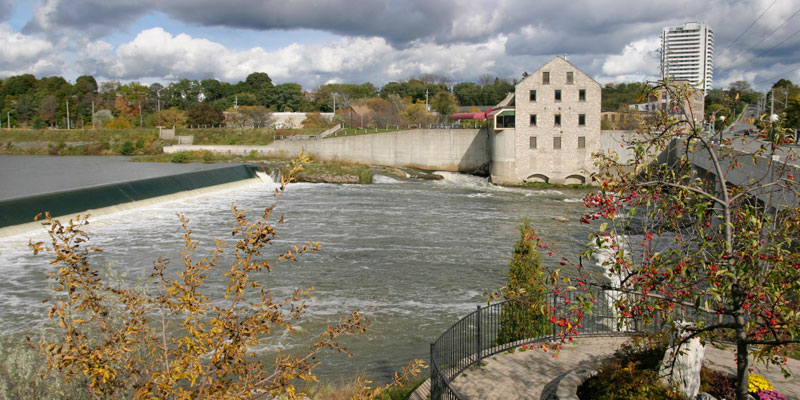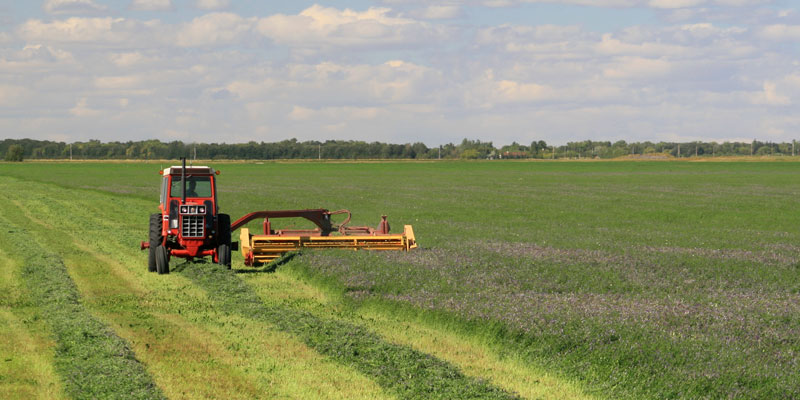Strategies for Managing the Effects of Climate Change on Microbial Contamination of Surface Water Supplies in Small and Aboriginal Communities
Principal Investigator - Gordon Huang, Professor and Associate Dean, Faculty of Engineering, University Regina, 2008 - 2012

Challenge
Outbreaks of enteric diseases (bacterial and viral infections of the gastrointestinal tract), associated with drinking water systems have been linked to extreme weather events. However, very little is known about the links between waterborne illnesses and climate change particularly in small and aboriginal communities where local water utilities lack the capacity to meet regulated drinking water quality standards. In order to better equip these communities with best protocols for future water management and source water protection, the effects of climate change on contamination of surface water supplies in these communities needs to be examined.
The project team, led by Dr. Gordon Huang, had the following objectives:
- Identification of the links between extreme weather events and microbial contamination in surface water supplies in select small and Aboriginal communities in Canada
- Development of a watershed characterisation tool for examining surface source water quality with integrated hydrological and pathogen transport models.
- Investigation of the occurrence of, and uncertainty associated with, heavy precipitation events across Canada under climate change conditions and their impact on microbial water quality.
- Working with stakeholders to develop implementation strategies for best management practices
Project
The research strategy includes characterization of climate change impacts, network-based simulation and optimization, impact/risk assessment, climate-scenario analysis, and policy investigation.
In five communities in Alberta, Saskatchewan and Ontario, investigations will be conducted to link watershed characteristics, water quality, weather conditions and hydrological/biochemical processes within a general framework. Targeted sampling will be undertaken for up to 5 significant, high impact events per year in each participating community. Water samples will be tested for turbidity and colour in addition to a host of pathogens. Potential changes of extremes in the future will be explored through simulation and statistical analysis. In addition, a literature review will be conducted to address observational trends of extreme precipitation, and previous model simulations.
A set of spatial analysis tools and watershed simulation models will be developed for describing important watershed processes that are associated with surface source water of small communities. In order to develop an integrated decision-support system for these communities, over 16 First Nations practitioners will be interviewed and results will be compiled into three tools to help identify issues, develop strategies and flexible policies to better address long-term water safety issues in small and remote communities.
The project team assessed how future extremes may shift over locations of critical importance in these communities. The research has shown that future climate change will not have a massive effect across the country. Such results have important implications on understanding the changes of watershed systems subject to climate, nutrient supply and biotic interactions.
Outputs
- Development of a set of spatial analysis tools and watershed simulation models for describing important watershed processes that are associated with surface source water of small communities.
- Development of a multilevel watershed-reservoir modeling system for modeling hydrological and biochemical processes in small prairie watersheds and a 3D lake/reservoir water quality model for describing biochemical dynamics of prairie water bodies.
- Development of a user-friendly database related to the project, providing baseline supports for modeling, risk assessment and decision making as well as data sharing.
- Development and application of a number of methodologies for risk analysis, uncertainty analysis and system optimization in various communities and watershed systems. They provide a solid basis for formulating the key components of the proposed integrated decision-support system.
Research findings of this project were presented at:
- Ontario First Nations Technical Services Corporation Conference in Thunder Bay; Canadian Water Network conference in Ottawa; World Water Day conference in Waterloo; Aboriginal Affairs and Northern Development Canada (Headquarters & Ontario Region); and Assembly of First Nations in Ottawa.
Research findings were also shared through submissions to:
- Aboriginal Water and Wastewater Association of Ontario newsletter (accepted for publication); Anishinabek Women’s Water Commission; Indigenous Cooperative on the Environment; Centre for Indigenous Environmental Resources; Nunavut Tunngavik Incorporation; Assiniboia water plant; Saskatchewan Ministry of Environment; Saskatchewan Watershed Authority; Safe Drinking Water Foundation; and Aboriginal Resource Centre – University of Guelph.
Outcomes
- It is expected that the results of this research will enable partners and other end users in their decision making to reduce the impact of climate change on drinking water quality in small and Aboriginal communities.
- Changes in practice related to the use of tools, models and modeling systems developed by the research team
- Access to information through the user-friendly database
- Increased knowledge surrounding the links between extreme weather events and contamination in surface water supplies in small and Aboriginal communities in Canada
- Strong partnerships have been created with the Saskatchewan government and community partners.




